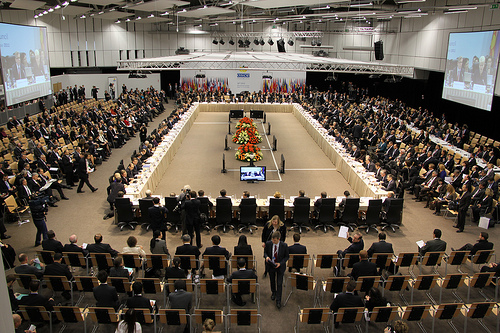
OSCE Ministerial Council meeting opening in Vilnius, 2011
Much has been written about the OSCE’s crisis. Much of it is true. Still, the future of this organization may be less grim than many predict. Current developments in Europe suggest that the role and relevance of the OSCE may actually grow in the years ahead.
For one thing, following the ambivalent outcome of military operations in Iraq and Afghanistan, there is a conspicuous intervention fatigue among European publics. The ‘crisis’ of military crisis management is bound to exacerbate as the European debt crisis translates into shrinking defense budgets. There will likely be a shift towards more subtle, civilian, long-term approaches to conflict resolution and peacebuilding – the type of measures the OSCE has focused on.
Looking at the EU and NATO, there is also growing enlargement fatigue. This points to obvious limits to how far stability in Europe can be accomplished by expanding the Euro-Atlantic security community. By implication, the pan-European OSCE, with twice as many member states as the EU and NATO, is bound to gain traction again.
